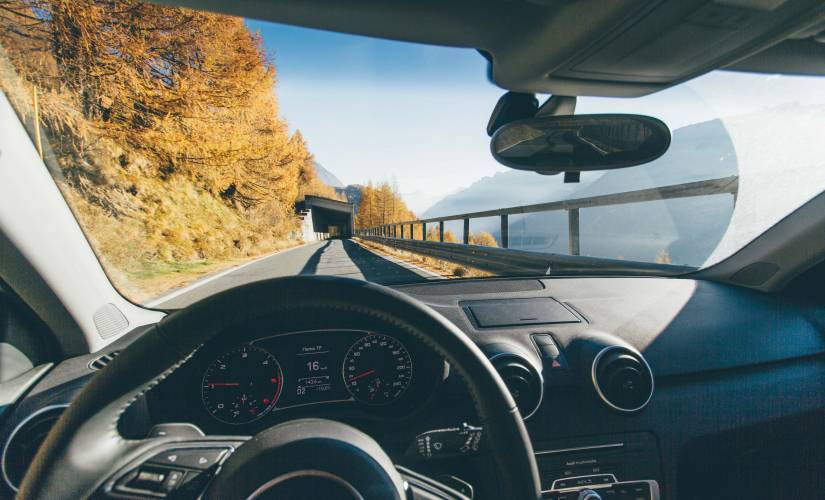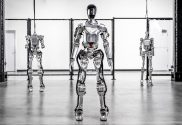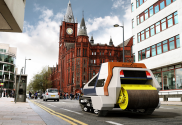Much has been made of the perils of self-driving cars. The Guardian warned that autonomous cars were entering “the most dangerous phase,” lulling us into a false sense of security — despite the fact that people had been caught using them on autopilot, leading to accidents and drunk-driving arrests. A Harvard University piece on artificial intelligence notes that most self-driving cars have only been tested on side roads because “software engineers do not yet trust their programs to correctly assess all the possible situations that can occur in traffic.”
But even a dangerous self-driving car has been deemed “better than a human driver.” Statistically speaking, in 2016, a self-driving car caused one fatality; in that same year, humans caused more than 40,000. And if we pull back some of the restrictions currently holding autonomous cars back — such as expecting them to be twice as safe as humans before they hit the road — Intel predicts the industry will be worth $7 trillion by 2050. It would also save $234 billion in public safety expenses.
The U.S. government seems to see the (green) writing on the wall, with the Trump administration maintaining the Obama administration’s hands-off approach to self-driving cars. Last year, the U.K. issued guidelines to assist developers of autonomous vehicles, with Greg Clark, the U.K. business secretary, saying, “Human error is a more dependable source of accidents and fatalities than well-tested, well-demonstrated, and well-regulated technologies. We don’t want to get back to waving a red flag in front of vehicles on the road.”
Companies and even governments are on board — what do they know that consumers don’t?
Have We Been Brainwashed?
A July 2018 Brookings Institution survey found that only 21 percent of people are willing to ride in a self-driving car. Sixty-one percent said they decidedly wouldn’t. Pew Research Center surveys revealed that only 39 percent of Americans feel automated cars would lower vehicular fatalities, and 87 percent feel a human should be present to drive in any car, autonomous or not. In total, Pew reported that more people were “worried” about self-driving cars than excited.
What gives? Just as humans fear robots will take their jobs and displace them from the workplace, humans fear that self-driving cars will reduce their control over and impact on the environment around them. Yet the Washington Post points out that 94 percent of car accidents are caused by human error, meaning that this perception of control is simply an illusion.
Why We Should Get on Board
While it’s easy to resist self-driving cars now, it won’t be long before they’re commonplace — and here are three reasons that’s a good thing.
1. The global economy will get a huge boost.
Intel’s prediction of a $7 trillion economy boosted by autonomous cars — through in-vehicle services, business mobility-as-a-service, and consumer mobility-as-a-service — means that “IT intensity” will double. As WIRED’s Alex Davies explains, “If you want a job in this new, self-driven economy, your best bets are IT and data crunching.” This signals that while our fears about robots stealing our jobs may be true, there will be other jobs to take their place and keep us working.
2. Autonomy will innovate business operations.
While autonomous cars will be able to deliver Amazon Prime packages even faster than their human-driven brethren, that’s not the limit of the operational impact businesses will see. The logistics industry as a whole has already been affected: Truck platooning is expected to reduce delivery times and expenses, to the tune of up to 10 percent of diesel costs. Rob Cook, VP of technology and solutions at third-party logistics provider Sheer Logistics, says, “The benefits of automation extend beyond just cost savings and efficiency, though. Autonomous vehicles obey safety protocols to the letter, and they can operate during the middle of the night, when the roads are relatively free of drivers. That means fewer tired truckers, faster shipments, and a likely reduction in accidents.”
3. Business will take to the streets and streamline services.
In addition to businesses’ long-haul logistics, local businesses will benefit from self-driving cars as well. Local services like pizza delivery and door-to-door couriers could take advantage of the speed and gas savings of self-driving cars. But experts also envision things like autonomous bookmobiles, gyms, and hotels, which could further the sharing economy currently fueled by Airbnb’s rooted-in-place rentals. (And let’s not forget that ride-sharing, the other sharing economy staple, is likely to get a lot cheaper.)
While the media has sometimes sensationalized the dangers of autonomous cars, driving people to fear what they still don’t know, that’s not the whole story. Self-driving vehicles stand to benefit humans much more than they cost them — we just have to get out of their way.





